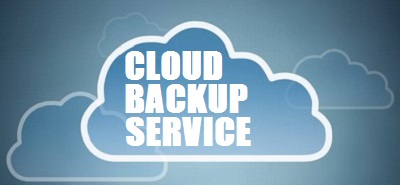This topic contains 5 advantages and disadvantages of using Cloud Storage as an IT personnel for your organization. Also, we focused on the usability, bandwidth, accessibility, disaster recovery and cost savings. This is to enable cloud users to easily compare and choose hybrid cloud provider wisely.
First of all, what is cloud storage? You need to know what you are getting into. Simply put, Cloud Storage is a service where data is remotely kept, preserved, managed, and backed up for safe keeping. That means to say that the service permits the customers who opt-in to freely store files on the online so that it can be accessed them from any location and anytime through the Internet.
From the results gotten from recent review conducted with more than 1,000 business decision makers and customers globally, the number of companies achieving competitive advantage through high cloud acceptance has almost tripled in the last few years. Furthermore, by 2019, the public cloud services niche market is projected to exceed $300 billion USD.
It is believed that you now have some information about cloud storage that will propel you to continue reading. Therefore, we can now move into some of the advantages and disadvantages of Cloud Storage otherwise called merits and demerits.
Merits/Advantages of Cloud Storage
1. Usability of Cloud Storage:
Every cloud storage services provided by a vendor and reviewed in this article have desktop folders for Linux, Apple Mac’s and Windows PC’s. As a matter of fact, this allows IT personnel to quickly drag and drop files between the cloud storage and their local storage otherwise called switching.
2. Bandwidth of Cloud Storage:
Instead of messaging files one at a time, you can easily send bulk files. Actually, it means that you can avoid emailing files to individuals directly but instead send a web link to addressees through your email.
3. Accessibility of Remote Files:
Of course, this is one of the most important aspect of cloud storage. Comparatively, remotely and physically stored files can be easily accessed from any place through an internet connection.
4. Disaster Recovery & Backup Plan:
Unexpected tragedy can happen such as fire outbreak, electricity power outage, attackers etc. For the most part, it is strictly advised that companies must have an emergency backup plan fully ready in the case of any emergency at all. Cloud storage is the solution for such threat because it can be used as a back‐up plan by organisations by providing a second copy of important files in a hybrid server. In case any threat occurs, your files are stored at a remote location and can be accessed again via an internet connection.
5. Cost Savings:
Businesses, organizations, firms or Companies can often decrease annual operating costs/expenses (OPEX) by using cloud storage services. Not to mention that cloud storage costs about 3-4 cents per Gigabyte to store data within. Customers who opt-in can see extra cost savings because it does not need internal power to store information remotely.
Recommended article:
Hybrid Hosting Control Flexibility and Efficiency – Public & Private Cloud Hosting
Demerits/Disadvantages of Cloud Storage
1. Usability of options:
You have to be extra cautious when using the drag/drop option to move a document into the cloud storage folder. Be careful as this will permanently move your files and/document from its original folder to the cloud storage location. Meanwhile, it is recommended that you do a copy and paste instead of drag/drop option. Do this if you want to retain the document’s original location in addition to copying a copy onto the cloud storage folder.
2. Bandwidth allocation:
This is the size of your allocation. Numerous cloud storage services uniquely have a specific bandwidth allocation depending on subscription plan. Note that if your organization exceeds the given allocation, you may significantly incur additional charges. Nevertheless, some cloud providers permit unlimited bandwidth as a premium service. In either case, this is one major factor that organisations must consider when searching for a hybrid cloud storage provider.
3. Accessibility of data:
The math is very simple; if you have no internet connection, you have no access to your data and files. You must locate a computer connected to online service.
4. Data Security & Privacy:
Over the years, there have been fears with the security/safety and privacy of important data stored online. In a word, there can be possibility of private data mixing with other companies; and this makes some organisations uncomfortable. Updates are available as this is a complete topic of its own. That being said, if you want to know more about those security issues that oversee data security and privacy, here is an interesting article on the recent data security privacy debates.
5. Software Download:
Applications and software give you full control at all time. So, you will need to download the service on all devices if you obviously want to be able to manipulate your files locally through multiple devices. Now you need to find out How to Choose Reliable Hybrid Cloud Vendor for Your Company and have rest of mind.







